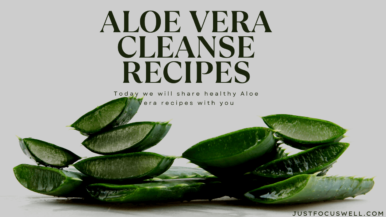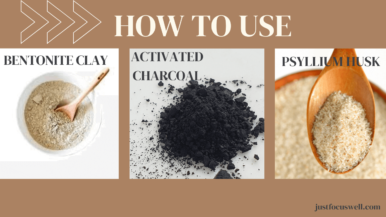The Science Behind Cinnamon Tea: Is Good For Congestion?

Today we will talk about through this post The Science Behind Cinnamon Tea: is Good for Congestion? Are you suffering from a stuffy nose and blocked airways? And you don’t get any solution.
So enjoy the aromatic allure of cinnamon tea to get rid of the problem of congestion. now is the time. Let’s find out the secret behind Cinnamon tea. How does it work for congestive?
Table of Contents
Is Cinnamon Tea Good For Congestion?

When it comes to getting relief from congestion. So many people are tired of finding the same old over-the-counter solutions. But you want to do more than just temporary relief. Cinnamon has been prized for centuries for its distinctive flavor and aroma.
MUST READ- 10 Surprising Benefits of Lotus Root Tea: The Power Of Nature
And also promises a crowd-free future. Recent studies have highlighted the health benefits of cinnamon. It has anti-inflammatory and anti-microbial properties. These properties make this tea the best for congestion. Because it helps in opening the swollen and blocked airways of the nose. Whether you have a cold, phlegm, or sinusitis.
MUST READ – Unlock the Benefits of Bladderwrack and Burdock Root And More
It works effectively on all of these. This tea offers a tempting option to ease your congestion blues. So come on, join us on this journey. Because we’re about to uncover the science behind this tea. and unlock its potential as a natural remedy.
MUST READ – The Best 10 Foods For Glowing Skin [You Should Know]
Along with this, we will also consider its possible side effects and precautions. So that you can make the right decision for your health. Sip by sip, we’re uncovering its healing powers.
Definition Of Congestion And Its Common Causes

It is of paramount importance to understand the nature of congestion before looking for remedies that provide permanent relief. When the nasal passages are blocked. So the tissue lining the nose and the surrounding blood vessels swell.
This inflammation can be triggered by various factors. Such as the release of histamine during an allergic reaction, the body’s immune response to infection, or irritation caused by environmental pollutants. In addition, the production of mucus can also become obstructed.
Due to this, there is difficulty in breathing through the nose. Symptoms of congestion can range from mild to severe. Due to this, the feeling of heaviness in the face, difficulty in breathing through the nose, difficulty in smelling, snoring, sleep disturbance, etc. can be included.
Symptoms and Complications Related to Congestion
These symptoms affect not only daily rest. but can also affect overall well-being and productivity. Whereas over-the-counter decongestant medicines and nasal sprays usually provide temporary relief. They also have side effects. Rebound congestion can occur with continued use of these drugs. As soon as these medicines stop. So the passages become even more congested when the nose is blocked.
As people are increasingly moving towards natural alternatives. However, this tea has attracted attention as a remedy for congestion. We have to fully understand the mechanism of congestion. So that the science behind this tea can be properly discovered. In doing so, we can uncover a gentle, natural approach to finding relief and restoring clear breathing.
In the sections that follow, we’ll delve into the fascinating world of this tea. And will find out. how its bioactive components interact with congestion. We’ll examine the effects of cinnamon’s anti-inflammatory and antimicrobial properties. That’s how it has the ability to reduce the swelling of the nose. Which can combat infections that contribute to congestion.
By understanding the underlying causes and symptoms of congestion, we can better understand it. Learn how this tea can provide a holistic and natural solution to this common ailment.
How Does The Mechanism Of Action Of Cinnamon Work?

How this tea provides relief from congestion. It is very important to find out this mechanism of action. Cinnamon has many bioactive properties including cinnamaldehyde, eugenol, and various polyphenols. These compounds act in unique ways on the body. and provide potential therapeutic effects. Due to this, the accumulation is reduced.
In addition, cinnamon has antioxidant properties. Which neutralizes harmful free radicals in the body. Due to this oxidative stress is reduced. By consuming this tea, you can increase the antioxidants in your system. By targeting these key factors, this tea reduces congestive symptoms. and promotes clear breathing.
What Research Studies Say About Cinnamon Tea
Researchers have conducted several studies to find out the effect of cinnamon derivatives on congestion. Existing studies provide valuable insight into the potential of this tea.
found a study published in the American College of Nutrition. that cinnamon extract reduced levels of inflammatory markers in the respiratory system. and demonstrated anti-inflammatory properties. this suggests. That cinnamon helps reduce the swelling of congestion. Due to this the blockage of the nose is relieved.
Reported in a study in the European Journal of Clinical Investigation. The antimicrobial properties of cinnamon help fight bacterial infections. which contributes to the symptoms of congestion.
Simultaneously, a review article was published in the Journal of Ethnopharmacology. Cinnamon has been used historically to relieve congestion, cough, and other respiratory ailments. These traditional uses lend their support to reducing the symptoms of congestion.
Different people react differently to this tea. Some people may complain of allergy and sensitivity to it. These studies contribute to knowledge. Cinnamon reduces the symptoms of congestion. and helps promote respiratory health.
How To Make Cinnamon Tea For Congestion Relief

It is very important to understand the correct method and use of cinnamon. So that you can get maximum benefit from this tea.
Choosing the Right Cinnamon: To reap the quality benefits, choose high-quality cinnamon. There are 2 types of cinnamon. One is Ceylon cinnamon (Cinnamomum verum) and the other is Cassia cinnamon (Cinnamomum cassia). Ceylon cinnamon has a mild flavor. It contains low-level coumarin. Due to which it is liked the most. Consuming this compound in large quantities can be harmful. However, both these types of cinnamon can be used effectively.
Stick or powder: You have the option of using either cinnamon sticks or cinnamon powder to make this tea. Cinnamon sticks provide a strong flavor and aroma. While cinnamon powder provides convenience. If using cinnamon sticks. So break them into small pieces and use them.
Basic Cinnamon Tea Recipe: To make this tea, first boil a glass of water. Add 1 cinnamon stick or 1 teaspoon of cinnamon powder to the boiling water. Boil it covered on low flame for about 10-15 minutes. So that its taste and qualities can be mixed together. Boil it till the water is reduced to half. After this, filter the tea. And enjoy it hot. You can increase or decrease the amount of tea as per your taste.
Flavor Enhancer: If you want, you can squeeze honey or lemon into this tea. And natural sweeteners can also be added. You can boil it with complementary spices such as ginger or turmeric. So that a unique blend can be prepared. Which suits your taste. However, don’t add too much sugar.
Recommended Dosage And Frequency Of Cinnamon Tea
It is recommended to drink 2 cups per day to reap the benefits of this tea. Start your day with this tea. You can have another cup in the afternoon. And you can drink this tea even before sleeping at night.
It is important to maintain a regular routine when using this tea for congestion relief. Some people start getting its benefits in a short time. And it may take longer for some people to see significant effects. Live according to your consumption. And be patient. Do let this tea show its effect over time.
Possible Side Effects and Precautions of Cinnamon Tea

However, this tea is generally considered safe for most people. But it is important to be aware of its side effects. That’s why keep the following things in mind.
Allergic reactions
Before including this tea in your daily routine, keep this in mind. That you are not allergic or sensitive to it. Which many people can get from cinnamon or related spices. If you experience any adverse reactions. such as skin rashes, itching, swelling, or difficulty breathing, discontinue use. Maybe it’s not for you.
Coumarin content
Cassia is mainly used in cinnamon tea. It contains a compound called Coumarin. An overdose of coumarin can prove harmful to the liver. However, coumarin tea is considered safe when taken in moderation. If you have liver problems. Or you are taking liver-related medicines. So we suggest you this. You must talk to your doctor once before consuming this tea.
Blood Sugar Regulation
Cinnamon is known to control blood sugar levels. Therefore this tea can prove beneficial for individuals with diabetes or prediabetes. However, it is important to closely monitor blood sugar levels. Especially if you are already taking diabetes medicine. this tea should be consumed in moderation. And that too after consulting a doctor.
Stomach sensitivity
Consuming this tea may cause stomach irritation or indigestion in some people. If you already have a history of gastrointestinal issues. Or you suffer from stomach sensitivity. So this is our recommendation. You start with a small amount of this tea. and see how your body reacts. If symptoms persist. or worsen. So stop using it.
Drug interactions
this tea in high doses can interact with some medications. Like blood thinners or antiplatelet medicines etc. If you are taking any such medicine. Which could be a potential interaction with this tea. So you must talk to your doctor.
Pregnancy and breast-feeding
this tea is generally considered safe during pregnancy and breastfeeding. But if it is consumed in small quantities. Be sure to talk to your healthcare provider once before including it in your routine. He will give you the right advice based on your health condition and circumstances.
Quality and Source
You should always use high-quality cinnamon from the right sources to reduce the risk of adulteration. Choose organic options to avoid exposure to pesticides or other harmful chemicals.
Remember, this tea should be used as a complementary approach to reducing symptoms of congestion. If your symptoms remain true. or get worse. So talk to the doctor for the right treatment.
If you follow these guidelines for cinnamon tea. So you can enjoy its soothing properties. And get relief from the crowd.
Final Words
We explore this tea as a natural remedy for congestion. Provided you with insight into its mechanism of action and the research supporting its use.
So overall we would say this. it holds promise as a natural remedy for congestion. But you have to see it. how it works on your body. And at what time does she do it?
If you see any allergy or side effects from its use. So stop drinking it. and talk to your doctor. Include this tea in your daily routine. and enjoy its delightful taste. And it will give you comfort and relief on your quest for clear, unobstructed breathing.
FAQ About Cinnamon Tea
2. Is cinnamon good for female fertility?
Well, it's hard to say. Is cinnamon beneficial in fertility or not? If you are trying to conceive. And considering using cinnamon tea to increase fertility. Then you should consult your doctor. They will provide personalized guidance based on your specific situation and medical history.
3. Does cinnamon help PCOS fertility?
Cinnamon regulates insulin levels. and improves its sensitivity. Which is an important factor in the management of conditions such as polycystic ovary syndrome (PCOS). Which can affect fertility.
4. What are the benefits of cinnamon water for the uterus?
Anti-inflammatory properties are found in cinnamon. Which helps in reducing the swelling in the uterus. such as endometriosis or uterine fibroids. Apart from this, cinnamon increases blood flow in the uterus. And balances the hormones, due to which the problem of irregular periods ends.









